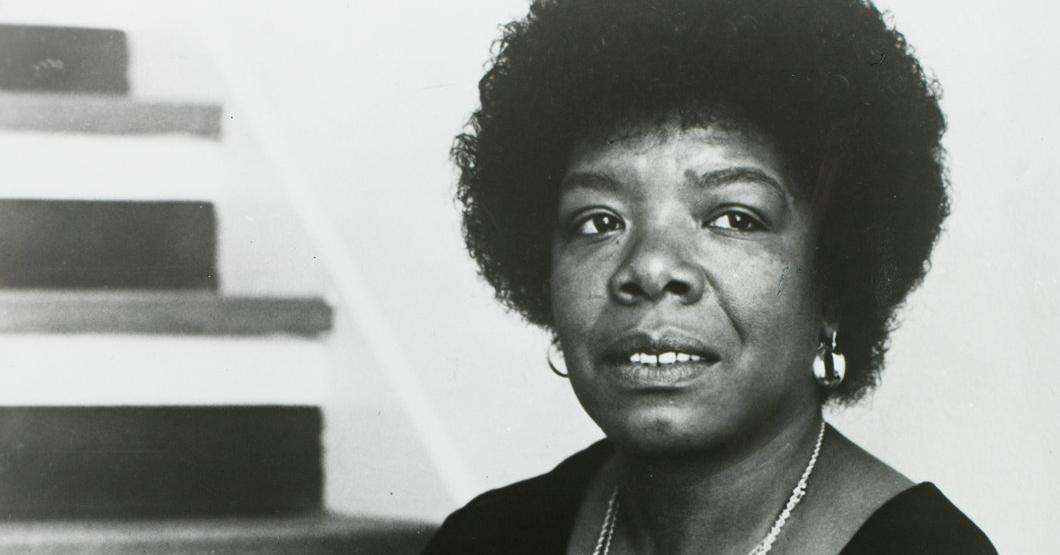“People across the world are yearning to be connected to stories of hope.”
In 1968, what helped me get through my year in Vietnam was a pen-pal who had agreed, on the suggestion of her boyfriend, to write to me. After all, he said, you will be in Paris while Rick is in Saigon – you two should write. She met me in LA when I returned from Vietnam. We were engaged four months later. Needless to say, the boyfriend was not particularly pleased. The last time I saw him was when he showed up at our door when my wife was nine months pregnant. I’m not sure if that made him feel better or worse.
We wrote almost every week. I would share my experiences visiting French restaurants in Saigon during the day, sitting guard duty with bullets whistling over my head at night, writing anti-war poetry on off hours, and reflecting on the writings of Herman Hesse, Freud, and whoever else I might have been hungrily consuming in my many spare hours. Those letters kept my spirits up during a dreadfully down time. Every day, I would look forward to the mail delivery to see if she had responded to my latest missive. I savored every word she wrote and eagerly searched for any sign that the relationship might be deepening. I yearned desperately for the day that we could connect more closely and touch each other physically.
These Covid days feel very similar. We long for better days. Depression and anxiety are familiar bedfellows. We don’t know when this will ever end. We are not sure if we will survive. We are clearly unclear about what life looks like on the other side. We know that life will not return to any resemblance of what normal looked like and felt like before this crisis. We are hoping that we can find something “next to normal.” We are yearning for the meaningful connections and the physical touch that feels so distant now.
In my spare hours now (which are abundant), I continue to read, write, meditate, exercise, practice my guitar, hold zoom social hours, and visit friends and family at safe distances. But, oh how I miss those squeezy hugs with my twin grand-kids every morning. No matter how you cut it, life feels different and distant. I yearn for better days, for deeper connections, for physical touch. This experience, however, triggered the idea of how people do stay connected when physical contact is not possible.
Lo and behold, I came across the letters of people I have always admired at different points in my life and how they managed to engage in meaningful conversations and maintain deep connection in spite of physical distance. What a treasure I found. It turns out, unlike my wife and I, that the letters of some of my favorite heroes (Hesse, Einstein, and Goethe) were all preserved for those of us who yearned for insights about how these great icons in history stayed connected with the people whom they admired and loved for one reason or another.
Let’s start with the letters between Goethe and Schiller between 1794 – 1805. Johann von Schiller was a German poet, philosopher, physician, historian and playwright. During the last decades of his life he developed a productive and complicated friendship with the already famous and influential Johann von Goethe who was a literary celebrity by the age of 25. Goethe’s first major scientific work was the Metamorphosis of Plants, but he went on to contribute brilliant works for his entire life.
The letters between Schiller and Goethe serve as a record of their friendship, feelings, and thoughts. Their friendship was truly a union of genius, intellect and culture. Their correspondence consists of more than nine hundred letters and only ended with Schiller’s death. They shared a complete indifference to what is commonly regarded as the great interests of life as well as a shared passion for aesthetics and science. The letters reveal the secret growth of two extraordinary minds.
Next, let’s take a glimpse of snippets from the Mann-Hesse exchanges between 1910 and 1955. Thomas Mann, the author of Magic Mountain among many other books, was a German novelist who won the 1929 Nobel Prize in Literature. His highly ironic novels are known for their insight into the psychology of artists and intellectuals. Mann incorporated ideas from Goethe, Nietzsche, and Schopenhaur to provide a penetrating analysis of the European and German soul. Hermann Hesse was a German-born Swiss poet and novelist who won the Nobel Prize in Literature in 1946. Hesse’s books helped me get through my year in Vietnam. Demian, Steppenwolf, Siddhartha, and the Glass Bead Game fed my soul as my pen-pal fed my heart. Mann thrived in celebrity; Hesse thrived in solitude. Both sensed the crumbling of the old order as Europe moved towards a new century.
Here are a couple of quotes from The Hesse/Mann Letters:
Hesse: “One is amazed at the amount of intelligence, method and organization employed in doing insane things, and no less at the amount or unreason and naivete with which nations make virtue a necessity and ideology of slaughter. Such is the bestiality and naivete of man.”
Mann: “We have experienced evil in all its horror and through this experience discovered our love of the good. If spirit is the principle, the power that desires the good – if it is anxious alertness to changes in the face of truth – then it is political, whether you like the term or not. Nothing that is alive can sidestep politics. Even a refusal of politics is political; it merely abets the politics of evil. Do we not all yearn to quit this life in the knowledge that, though all manner of things that are objectionable from a literary point of view are possible on this planet, whose fleeting acquaintance we have made, one thing, a most disgraceful, diabolical, utterly filthy thing, has after all, not been possible, but has been swept always by the united forces of humanity? For my part, I should like to have contributed something to this dispensation – if that is what you call politization of the spirit.”
What I hear Mann and Hesse saying is that if we can make any small contribution toward sweeping away the large and small evils we see in the world, then life is worth living.
Finally, let us turn to the letters between Einstein and Freud which occurred in 1931 and 1932 – right in the middle of the Hesse-Mann exchanges. Einstein, of course, is the most famous physicist in the world, and Freud is the most famous neurologist turned psychologist in the world. How wonderful that they decided to reach out to each other to discuss the conditions that ultimately led to World War II. Einstein initiated the correspondence by writing a letter to Freud asking him about the causes and solutions of war. He wondered if the problem of war could be solved permanently. In response, Freud suggested that war is caused when people believe that might (or violence) is right when their desires are not fulfilled. According to Freud, only temporary solutions are possible because it is not possible to fulfill all human desires all the time. Conflicts will occur and people will resort to violence to achieve their unfulfilled desires. The only real solution would be to create a world culture in which we all felt connected and loved each other. Good luck with that!
What struck me in all of these genius exchanges was how deeply connected they felt toward each other and how much they valued the respective relationships. It must feel very lonely to be a genius, so I’m happy they were able to find each other. These exchanges also made me think about how difficult it must have been for each of them to have found a soul mate given their high level of intellectual functioning and their low level of interest in all things common and ordinary. There were very few people one earth with whom they could connect intellectually and relish the relationship.
For me, in any relationship, what’s most important is that points of connection need to outweigh points of disconnection. For the six geniuses discussed above, the intellectual connection was sufficient. They must have been so grateful to find someone with whom they could exchange ideas that nothing else mattered. For the rest of us mortals, relationships require multiple connection points. Physically, we can connect through exercise, sex, touch or just being there for someone. Emotionally, we can connect through conversation and shared feelings and values. Intellectually, we can connect through common interests. And spiritually, we can connect through community or by what gives us joy. It’s highly unlikely that any of us will be connected on all dimensions all the time. We all have different interests and needs. We need to accept those differences and continually strengthen the connections.
Over the course of our 50 years of marriage, my pen-pal-now-wife and I have had many disconnects that might have de-railed our relationship. Fortunately, our multiple points of connection got us through the crises we endured. We both emerged stronger. The tricky thing in long-term relationships is that people grow, mature, and change. Interests and needs shift. Both parties in these relationships need to accept these changes, adapt to them, and embrace them. Not an easy task.
This pandemic raises the ante for finding and maintaining connections. We can only connect physically with our family. We can only connect emotionally and intellectually through virtual technologies and letters. We can only connect spiritually by sharing joy wherever we can find it.
We are all yearning for deeper connections on multiple planes. Vietnam gave me a chance to deepen connections in spite of physical distance. The “genius” stories I shared give us hope that long and strong connections are possible. This pandemic challenges us to maintain, renew and strengthen connections in spite of all the obstacles and restrictions. I’m hoping that each of you will find ways to reach out to the people you love to satisfy the yearnings you may have during this difficult time. May it be so.
Also published on Medium.




Thank you my friend!
Can we become radically interdependent when we can only connect virtually? We must, so therefore it must be possible. Am trying to wrap my brain around this now. Thank you for sharing your wisdom and perspectives!